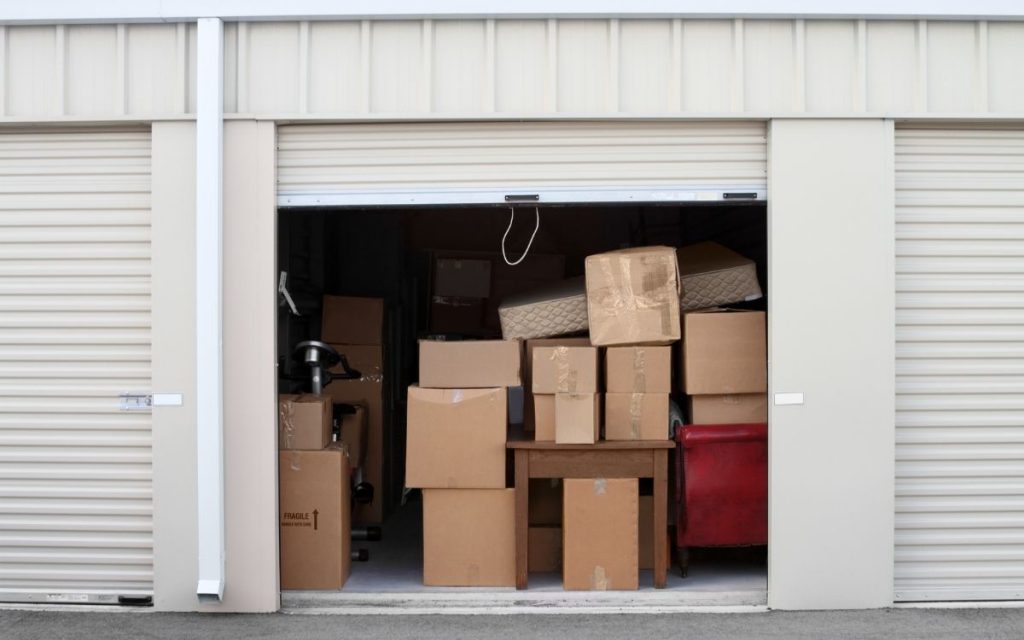
People store their personal belongings and properties in a self-storage facility unit to keep them safe and secured. Whatever reasons they may have for storage, they are entrusting their belongings to the facility.
Items such as furniture, electronics, and motor vehicles are the most common items people store in their units, and these are all valuable to them. Even with the countless upkeep and risk management efforts you make to keep your facility safe, there can still be circumstances beyond your control that can lead to damage or loss of your tenants’ property.
Generally, self-storage businesses are not liable for any damages incurred by the tenants personal properties which are stored in their units. Although there are many cases in which the tenants would still blame the damages on the storage facility.
In the event of a break-in, fire, flood, or any other catastrophic event, tenant insurance, also known as customer-storage insurance, gives your business extra protection by covering the damages sustained to the personal properties of the tenants while stored in your storage facility.
Self-storage tenant insurance is beneficial to both the tenants and facility owners. Here is an overview about tenant insurance for self-storage facilities and how it can be beneficial to your business.
Benefits of Tenant Insurance
Reduction of Risk/Liability
Self-storage tenant insurance gives protection to both the tenants and your business. Not only does it protect the property of the tenants, but also reduce your liability when accidents occur. It helps with the risk of tenants asking for payments on their property which have been damaged or lost while in storage at your facility.
Additional Revenue
Implementing a tenant insurance program can also generate extra revenue for your self-storage business. Many insurance providers give a portion of the profits to your property for enrolling your tenants with their insurance program.
Better Customer Service
Offering tenant insurance provides good customer service. Giving your tenants the option to add an extra layer of protection reinforces the message that your facility cares about their belongings.
Adding tenant insurance to you menu of facility features will give your current and prospective customers peace of mind knowing that whatever happens, their valuables are protected when they choose to store with you.

Can a Storage Facility Require Insurance?
It is legal for a storage facility to require insurance to their tenants. Indeed, a lot of self-storage facilities do require insurance that tenants purchase insurance rather than making it an optional add-on. A lease mandate requires tenants to have insurance before they can rent a self-storage unit on your facility.
If you want to offer or require tenant insurance at your self-storage facility, there are two main ways to go about this.
Require Insurance
The first is the required route. Tenants can either buy tenant insurance directly from you or show proof of their insurance coverage from a rental or homeowners policy, but either way their belongings must be covered before they can store them at your facility.
For tenants that have a proof of homeowners insurance, they should be aware of the coverage and limitations as well as the deductibles. When requiring insurance of your customers, this is where the aforementioned lease mandate comes in. Having a lease mandate helps you be up front with tenants from the beginning, and having the requirement in writing can make it easier to enforce.
Offering Insurance as a Value Add
Another option is upselling, giving your tenants the choice to purchase coverage from your facility for a monthly fee in addition to their rent. If you’re offering tenant insurance as an optional value-add, you’ll want to make sure that your manager offers the programs effectively to the customer, informing every new tenant of the risk and their responsibilities if they choose not to opt for insurance.

Tenant Insurance vs. Tenant Protection: What’s the Difference?
A tenant insurance and a tenant-protection plan are two different products that you can offer to your customers. Here’s more information about what these products are and their differences.
Tenant Insurance
Tenant insurance is a contract between the tenant and your provider’s insurance carrier. The tenants can directly file a claim with the insurance provider should they need to. The insurance company handles the claim, whether it is valid or not, and decides the amount of damages to be awarded, if any.
Some insurance providers give a commission to the self-storage operators for every sold policy, making tenant insurance an excellent additional revenue stream.
All states have their own rules regarding insurance for self-storage operators.
There are only a small number of states in which it is legal for the self-storage facility and its operators to sell tenant insurance under a limited license. So anyone who offers tenant insurance to the customers should be licensed. Unless any of your staff are licensed to sell insurance, you’ll want to partner with a trusted provider. Also, insurance rates and plans are subject to approval and regulations from the state.
Tenant-Protection Plan
A tenant-protection plan is a contractual relationship between the tenant and the storage facility operator. Self-storage operators assume the risk of the tenants’ belongings in exchange for a monthly payment.
They agree to pay damages to the tenant in the event of property theft or damage, but only up to a limited amount stated on the contract. This is usually a part of the lease agreement between the tenant and the facility operator.
As this is not an insurance product, there is no licensing required and the terms of rates and plans are not regulated by the state. The facility owners are the ones who set their own rates and therefore can add revenue to the business.
However, facility owners should consequently purchase a contractual liability insurance policy for their business to protect themselves from financial loss by this tenant-protection plan in case such circumstances arise.

What to Look for in an Insurance Provider
It is important to look for a trusted, reliable insurance provider. They should have a full range of products to offer that are suited for all the insurance requirements needed in the specific state you operate.
An insurance provider that has a good profit-sharing model would be beneficial to your business. Do they provide marketing tools and training to the facility manager and staff? Do they have readily available licensed agents to answer questions and provide support? These are factors to look for when choosing your insurance provider.
Lastly, how do they handle claims? Check the insurance provider’s claims-paying record. They should handle claims in a seamless, easy and convenient way for you and your tenants.
You should read thoroughly the provider’s insurance-carrier policy and the fine print for its terms and conditions. Understand the duties you have as a licensed agent and how the policy will affect the tenants.
Popular Vendors
Here is a list of some popular vendors that provide insurance products for self-storage tenants.
Bader Company
Bader Company is an insurance provider that offers tenant insurance, renters insurance and commercial insurance. They offer affordable and reliable insurance coverage and have helped self-storage owners and tenants with their insurance needs for over 35 years.
Deans & Homer
Based in California, Deans & Homer was established in 1856. They offer insurance products to both owners and tenants and operate in various territories around the United States such as Arizona, California, Utah, Washington, Oregon and Nevada.
MiniCo
A self-storage and specialty insurance company, MiniCo offers multiple insurance products. They also offer insurance coverage for valuable collectibles stored in a storage facility.
Storage Protectors
Storage Protectors provide storage contents insurance and damage waiver coverage. They allow comprehensive coverage for items stored in self-storage units and mobile storage containers and they also cover contents while in transit.
StorSmart Insurance
StorSmart Insurance is a self-storage contents insurance company which covers loss of valuables from various environmental factors such as fire, burglary and so on. They feature comprehensive contents on their insurance programs.
Tenant Property Protection
Just as their name implies, Tenant Property Protection offers tenant protection programs as an alternative to tenant insurance. They have been operating since 2009 serving self-storage owners across the United States.
How to Sell Insurance or Protection Programs to Tenants

When offering your customers tenant insurance, present and explain to them the importance of having their belongings covered. Highlight all of the security features your facility has in place to protect their valuables, letting them know that your insurance or protection program is another feature offered for their peace of mind.
If is your facility’s policy not to cover any damages to their personal property should an issue arise, be sure to make them aware of the policy. Customers need to understand their responsibilities as a tenant and the risks of choosing not to get insured.
Include in the lease agreement that the customer understands their responsibility regarding these policies, whether they choose to purchase a protection plan or not. Indicate that by signing the lease they are confirming that they have been presented with information about your facility’s insurance or protection programs.
Offer a pay-with-rent program to your tenants for an easier and more convenient way to pay their insurance. With a pay-with-rent program, the insurance is set up during the rental process. The payment for the insurance is collected each month together with the storage unit rental fee.
To manage liability risks, self-storage business owners need to put together counteractive measures to avoid certain risks. Establishing a tenant insurance program or a tenant-protection plan is important as well as beneficial for both storage owners and customers.
Resources:
- https://www.iii.org/article/self-storage-facility-coverage-and-tips
- https://www.insideselfstorage.com/insurance/liability-claims-rise
- https://www.insideselfstorage.com/companies-and-products/why-you-should-offer-self-storage-tenant-insurance-program-and-how-get
- https://ptisecurity.com/secure-self-storage-tenant-insurance/
- https://www.storagepug.com/blog/2018/08/maximize-profits-tenant-insurance-plans
- https://www.insideselfstorage.com/products/self-storage-tenant-insurance-vs-protection-plans-differences-advantages-and-risks
- https://collectibles.minicoagentportal.com/


Recent Comments